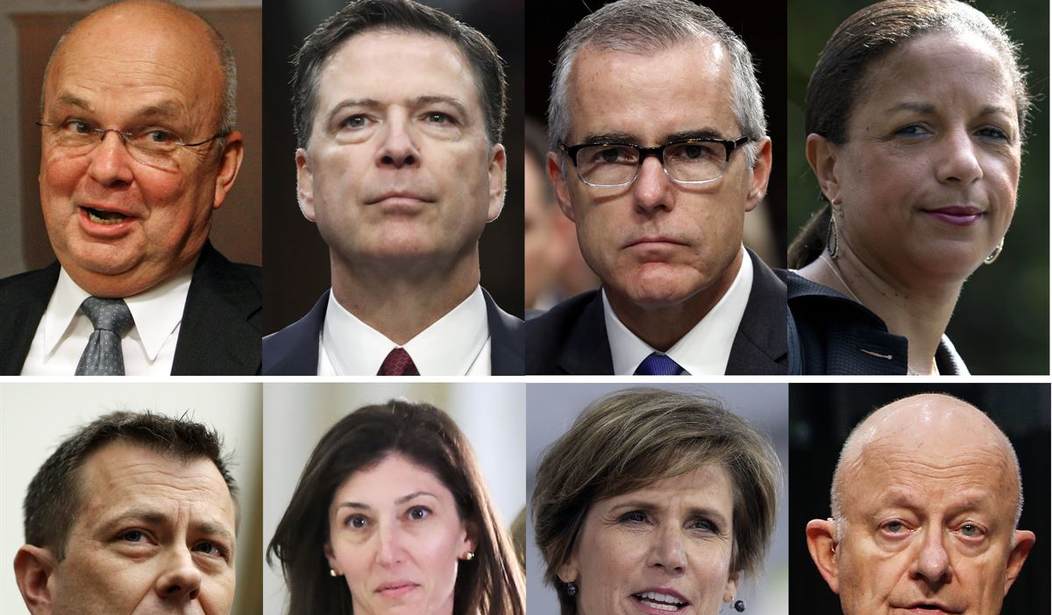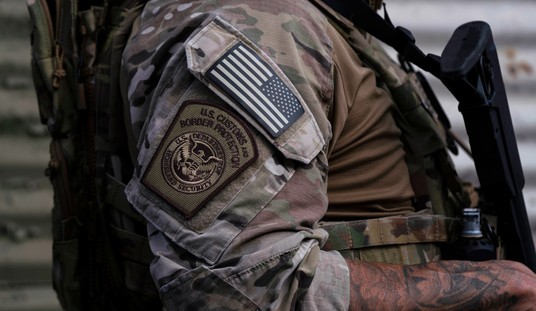The New York Times, yesterday, published a story that caught many by surprise — particularly people like me who have followed closely the DOJ investigation of the DOJ in the form of Special Counsel John Durham’s investigation into the origins and pursuit of the great Russia Hoax investigation code-named by the FBI as “Crossfire Hurricane.”
The Times reported that back in February, the Brookings Institution, a long-time Washington DC fixture and think tank closely associated with the foreign policy views of the Democrat Party, had produced records to Durham in response to a subpoena related to a former Brookings employee named Igor Danchencko. The NYT reported that the subpoena has been issued on December 31, 2020, and that the General Counsel for Brookings confirmed to the Times that it had produced documents responsive to the subpoena in February.
The NYT reporters did not stumble across this story because they were simply cold-calling Washington DC think tanks inquiring about whether anyone had been contacted by John Durham.
Nor is it likely that the NYT reporters were the beneficiaries of a leak about the existence of such a subpoena from someone inside Durham’s probe, as it has been extraordinary in terms of the fact that no leaks from individuals involved with the investigation have found their way into the media for the nearly two years it has been underway.
The existence of this subpoena, the subject of the subpoena, and the fact that Brookings had produced documents in response to the subpoena is information that has been put out by Brookings.
Before descending into ridiculous and purposeful efforts to throw cold water on Durham’s investigation, the NYT reporters did reveal a few significant pieces of data with regard to the investigative path that Durham seems to be pursuing.
Igor Danchenko was the “Primary Subsource” for former British MI6 Agent Christopher Steele who provided a series of “memos” to the FBI which have been collectively referred to as the “Steele Dossier”. I have written extensively in the past about Danchenko, the FBI’s use of the memos, and the FBI’s discovery that Danchenko was likely an asset of Russian intelligence.
But the most basic critical facts are that in 2009 and 2010, the FBI had information leading it to believe that Danchenko — while working at Brookings — had made initial inquiries about whether members of the incoming Obama administration might be willing to sell certain information they might come into possession of as part of their new government positions. The FBI considered Danchenko a potential intelligence operative connected to Russian intelligence agencies, and spent some time going through the process of initiating a counterintelligence investigation against him. That investigation was shut down when Danchenko left the United States without any known plans for when he might return.
But Danchenko did return and was later introduced to Steele while again working at Brookings. Because Danchenko claimed to have an extensive network of contacts in Russia, Steele supposedly put Danchenko to work gathering intelligence information for his business clients, work that eventually came to include the Hillary Clinton campaign for president in 2016. His work-product for Steele supposedly made its way into the infamous Steele Dossier while Steele labored to keep Danchenko’s identity secret.
But the FBI was able to determine Danchenko’s identity in December 2016, at a time it had ended its relationship with Steele. FBI agents connected to the Crossfire Hurricane investigation spent parts of three days questioning Danchencko about the events described in the Steele Dossier that were attributed to him. Even though Danchenko’s answers during those extensive interviews undercut many of the claims made by Steele in the memos, the FBI agents and supervisors running Crossfire-Hurricane opted to press forward, undeterred by the very obvious evidence that Steele’s information was largely unreliable and untrue, and that Danchenko could no longer be relied upon for any reason because he had previously been determined to be a possible Russian intelligence asset.
On this issue, the Times story offers an interesting revelation:
Mr. Durham has also asked questions that suggested a focus on skepticism about how the F.B.I. approached issues that might have undermined the dossier’s credibility as a basis for wiretap applications, people familiar with the inquiry said.
For example, Mr. Durham’s team is said to have asked why the F.B.I., after identifying Mr. Danchenko as a major source for the dossier and interviewing him in early 2017, did not tell the surveillance court that he had once been the subject of a counterintelligence investigation.
Note that these are not questions Durham’s investigators would have posed to anyone at Brookings. So now the Times reporters are obtaining this aspect of their story from another source — my guess would be an attorney for an FBI official to whom such questions were posed. In that sense, I might be willing to make a small wager that the source is an FBI official who is cooperating with the Special Counsel’s probe.
These are the kinds of developments that cause investigations like this to take much more time than is expected when your only exposure to how the system works is what you see on TV.
The continued use of information from Danchenko has always been a huge “red-flag” problem in my review of the FBI’s conduct. There was simply too much information known to the FBI by December 2016 and January 2017 to press forward with the investigation while continuing to rely on earlier judgments that there was some substance to the Russia Hoax allegations. Nothing that the investigation was actually turning up — nothing that was later reported by the Mueller Special Counsel investigation or otherwise disclosed by Inspector General Horowitz’s report — has ever supported the FBI’s continued belief in the legitimacy of the “Russia Hoax” allegations such that the investigation should have been carried on after Pres. Trump took office.
Maybe more than any other specific fact or set of facts, the information given to the FBI during the multi-day interview of Danchenko, combined with his “problematical” history that made practically worthless ANYTHING he said implicating anyone in subversive activity, made it improper for the FBI to push forward as it did when a “pause” and objective review of where the investigation stood and what they had learned would have likely caused it to have been shutdown.
According to the Times story, Durham seems to be as curious as I am about why that did not happen — what was the motivation for pushing forward for another five months in light of the known facts as they were uncovered.
I suspect this is only the beginning of a flow of information we may see in the weeks ahead. Danchenko is clearly at risk for prosecution based on answers he gave while being interviewed by the FBI. Moving against Danchenko in an effort to gain his cooperation against others would be the next logical step.














Join the conversation as a VIP Member